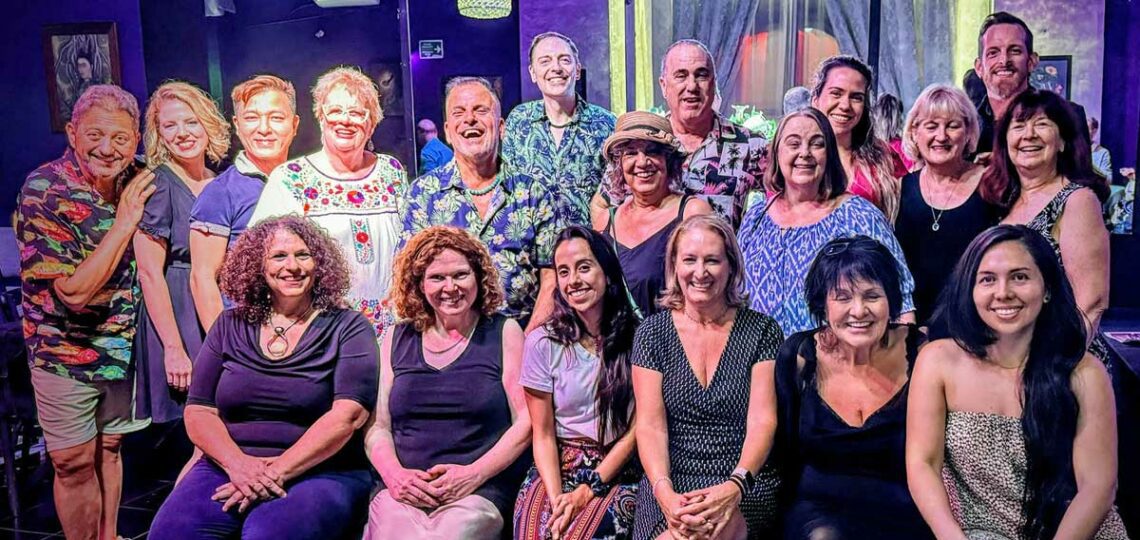
Fiesta de Cabaret: A Transformative Journey in the Art of Performance
Fiesta de Cabaret, a cabaret festival and workshop at Act2PV Theater in Puerto Vallarta, is more than just a learning experience—it’s a transformative journey for its participants. With guidance from some of New York City’s brightest stars, students refine their craft through daily classes, seminars, performances, and open mics. The inaugural edition in November 2024 saw 16 students from diverse backgrounds immerse themselves in the art of cabaret, learning not only about vocal technique and stage presence but also about the importance of authenticity in performance. Four participants shared their experiences and how the workshop reshaped their approach to cabaret.
Stephanie Wright Watts described the most valuable lesson she learned as “just be yourself… on purpose.” While initially unsure of what that truly meant, it all clicked when she performed her first solo show. Cabaret, she realized, was about vulnerability, about portraying why a song speaks to you, about storytelling. “It’s like having a conversation with the audience,” she said. Witnessing the transformation of her fellow performers was another highlight. “I’ve worked with some of them for years, heard them sing the same songs. But during the workshop, they performed those songs in a way that was so much more personal, and it made the room feel something really special.”
A defining moment for Robert Ryan came during a session with Lina Koutrakos. As he sang “What More Can I Say,” Lina pushed him to deliver the lyrics directly to different members of the audience, emphasizing personal connection. “That’s when it hit me—my superpower,” he shared. “She told me, ‘You’re an old man. You’ve had lots of experience with relationships. Tell this 20-year-old girl what it was like to fall in love for the first time with your husband of 27 years. Now tell her, goddammit.’ And I did. Half the class was in tears when I finished singing. In short, don’t act—just be in the song.”
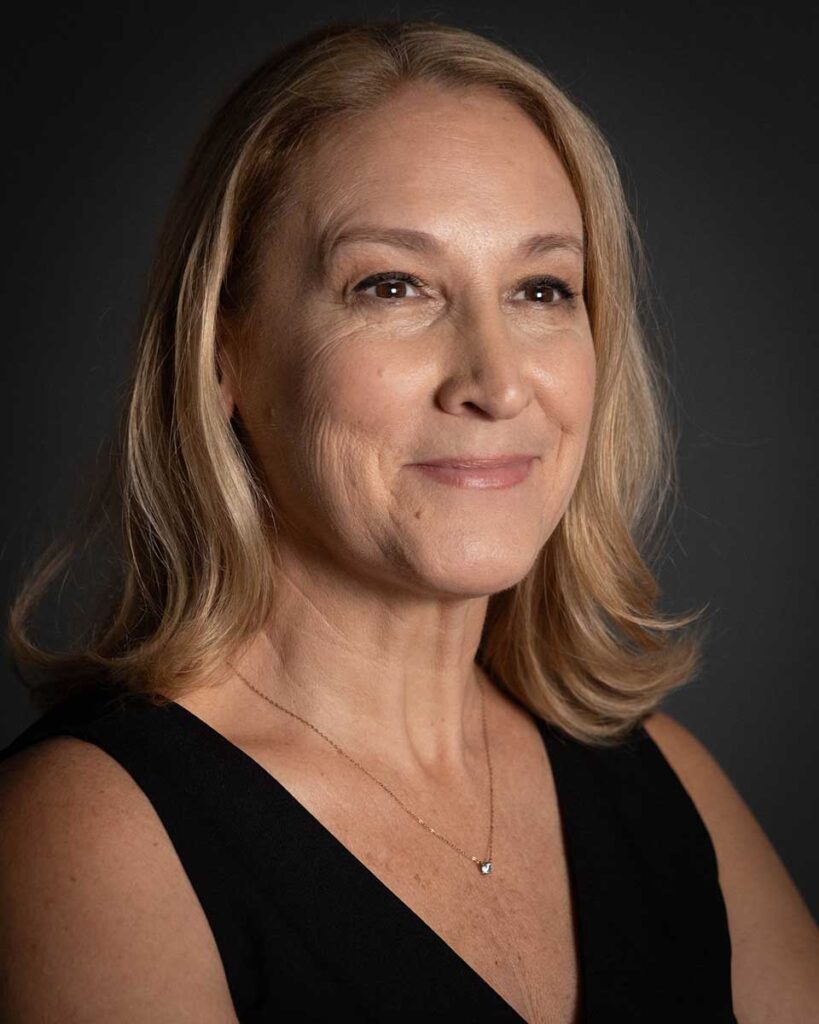
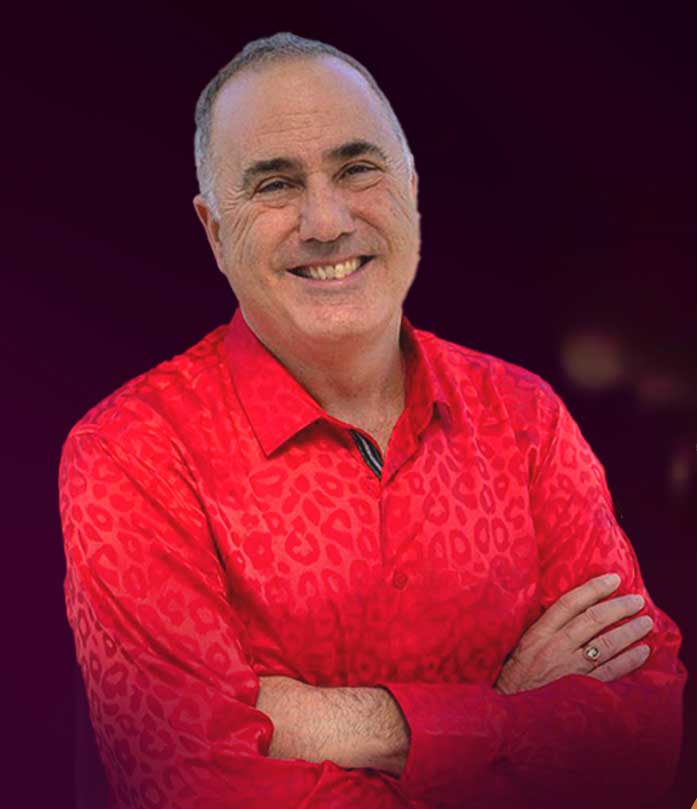
Gloria Fiona found the workshop to be an opportunity for self-discovery. “I’ve always loved to sing, but this experience taught me that cabaret is more than just performing—it’s sharing who you are,” she said. Gloria struggled with stage fright but found that embracing her nerves and channeling them into her storytelling made all the difference. “It’s not about perfection. It’s about connection. And that realization changed everything for me.”
For Montserrat Serra, the biggest breakthrough was learning to trust herself. “I used to overthink every note, every movement on stage. But through this workshop, I realized that my best performances come when I let go and just feel the music,” she said. One of her most emotional moments came when she performed a deeply personal song and saw audience members moved to tears. “That’s when I knew I was doing something right.”
For many, working with the guest performers and music directors was an enlightening experience. “They were all fantastic—not only as performers but as teachers and just… people,” Stephanie said. “They were open, honest, and willing to share their experiences. Watching their shows, each so different in style yet all under the cabaret umbrella, was a lesson in itself.” The music directors played an equally pivotal role, helping students craft material tailored to their strengths. “During the workshop, I worked with Tracy Stark, an amazing singer-songwriter. Now, I have the honor of working with David Maiocco on my solo show,” Stephanie added. “Both of them have taught me—and are still teaching me—how to make a song my own.”

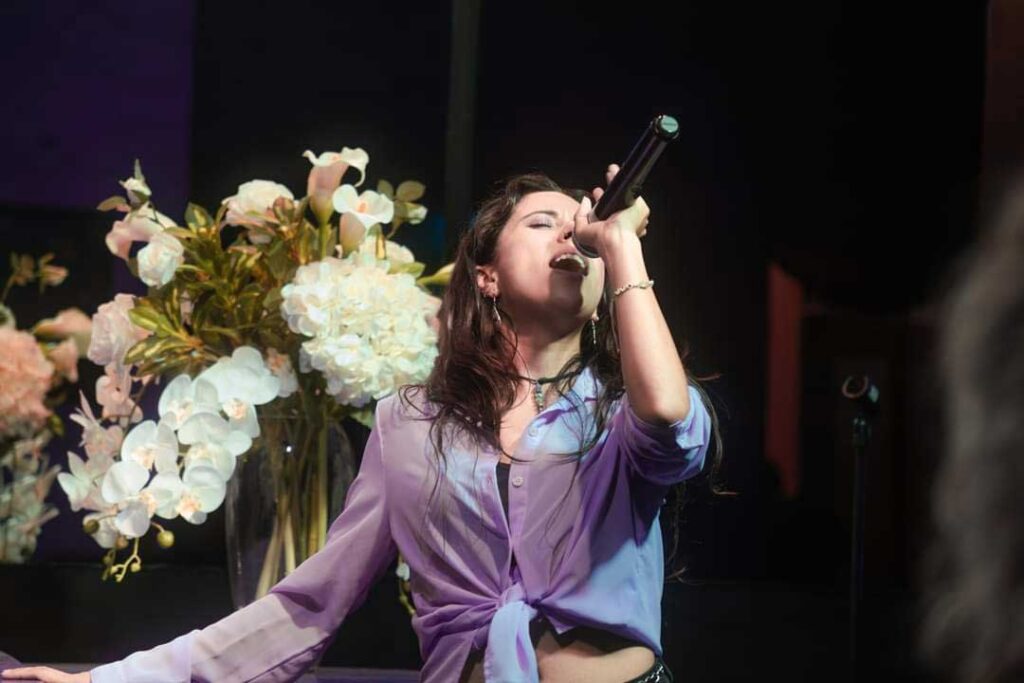
Robert noted the diversity of cabaret styles presented by the guest artists. “No two singers are alike, no two shows are alike. Watching performers like Natalie Douglas, David Sabella, and Perry Ojeda showed me how vast the world of cabaret is. It’s not just a genre—it’s a deeply personal form of expression.”
The impact of the workshop extended beyond the classroom. Participants made noticeable changes to their approach to performance. Stephanie, who was accustomed to playing roles in shows, singing with bands, or performing karaoke-style, found herself embracing a new method. “Cabaret is all of that put together and none of that at all,” she said. “Now, I’m essentially playing the role of myself, singing songs that mean something to me, portraying them in a way that makes the audience feel something too. It’s intimidating and freeing all at once.”
Song selection was another significant shift. Stephanie struggled to find the right song until a fellow student suggested “Dear Insecurity.” “That song resonated with me and all of my fellow students. It’s a very relatable song for everyone at some point in their lives.”
The biggest challenges varied among participants. For Robert, it was breaking the fourth wall and fully engaging with the audience. “I had to learn to stop hiding behind the music and instead deliver it with honesty and directness,” he said. For Stephanie, it was narrowing down her song choices. “I kept questioning which song was best for my voice and for what I wanted to say. The right song found me at just the right moment.”
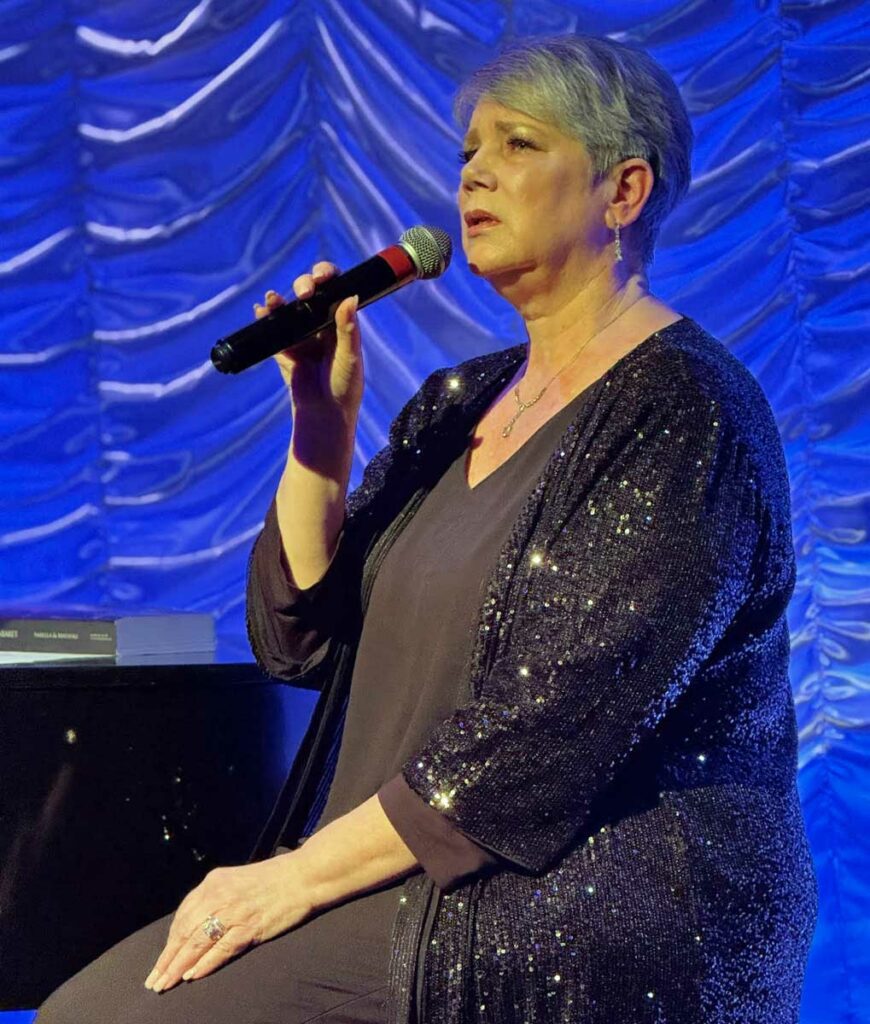
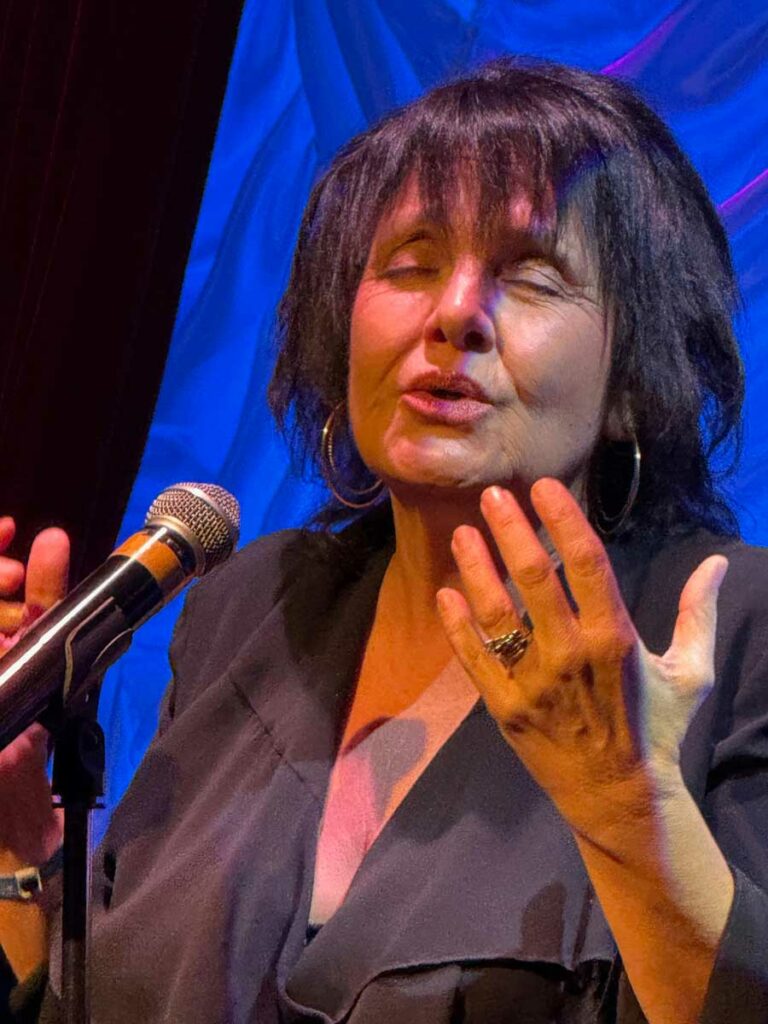
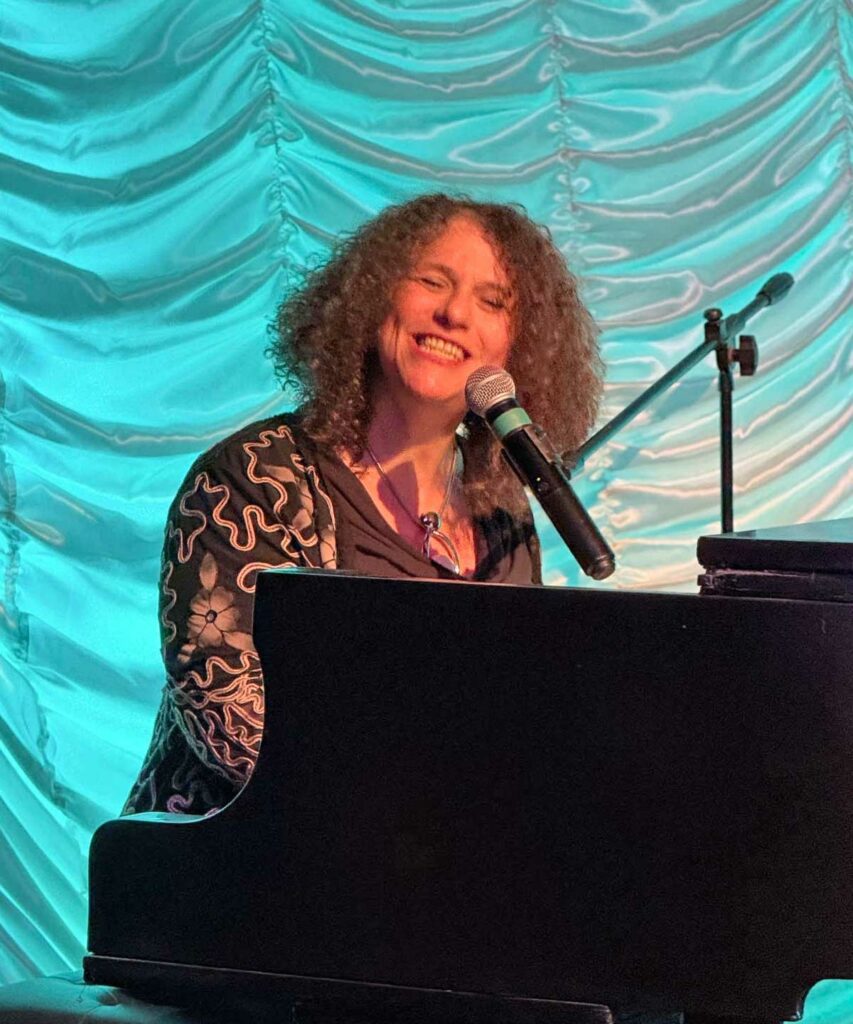
The structure of the workshop played a crucial role in the growth of its participants. Each day began with warm-up sessions focused on vocal health, breathing techniques, and body awareness. Masterclasses followed, where industry veterans shared insights into storytelling through song, emotional connectivity, and the technical nuances of live performance. Afternoons were dedicated to one-on-one coaching sessions, where students fine-tuned their numbers, experimenting with phrasing, tempo, and delivery. Evenings were filled with performances—open mics, showcases, and special concerts by guest artists—providing students with the chance to test what they learned in a supportive environment.
Beyond the classroom, bonds were formed. “One of the most beautiful things about Fiesta de Cabaret was the sense of community,” Robert said. “We lifted each other up. We weren’t competing—we were celebrating each other’s voices, experiences, and stories.”
Since the workshop, Stephanie, Gloria, and Montse have performed solo shows at Act2PV. Stephanie’s show, And Just Like That, debuted in February 2025 and was met with a warm reception. “I was fortunate to have my first show in a room full of mostly friends and family, which made it feel like a safe space. But the biggest surprise was the reaction from audience members I didn’t know. They connected with my story, and that meant the world to me.” Her show has since been extended.
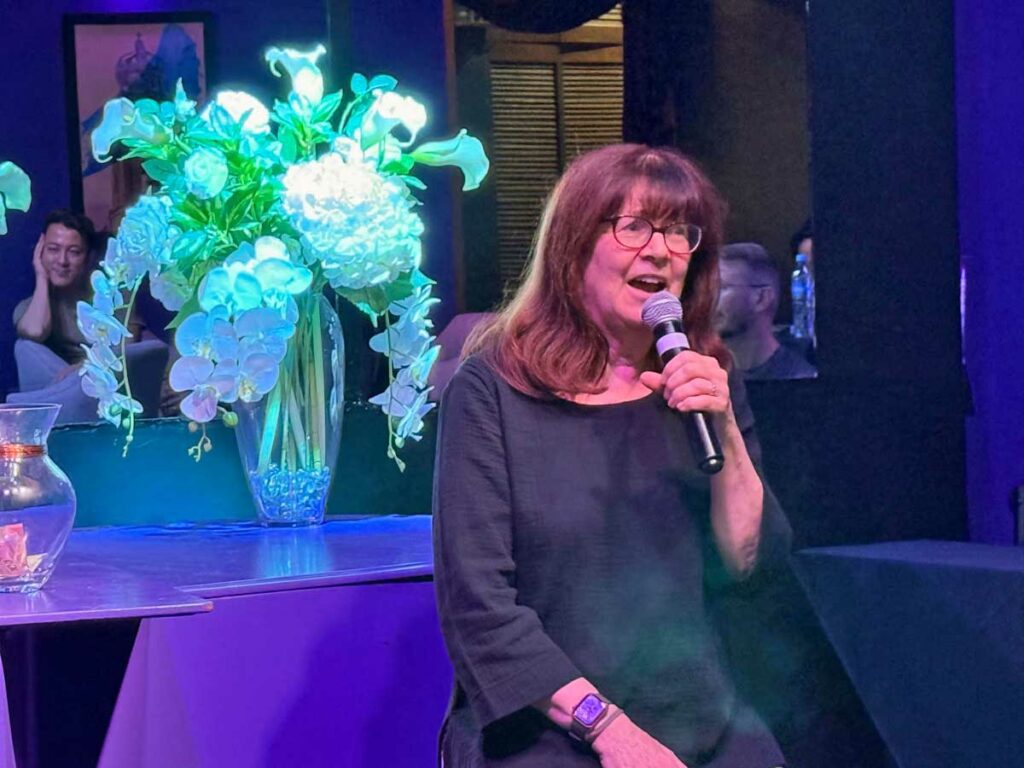
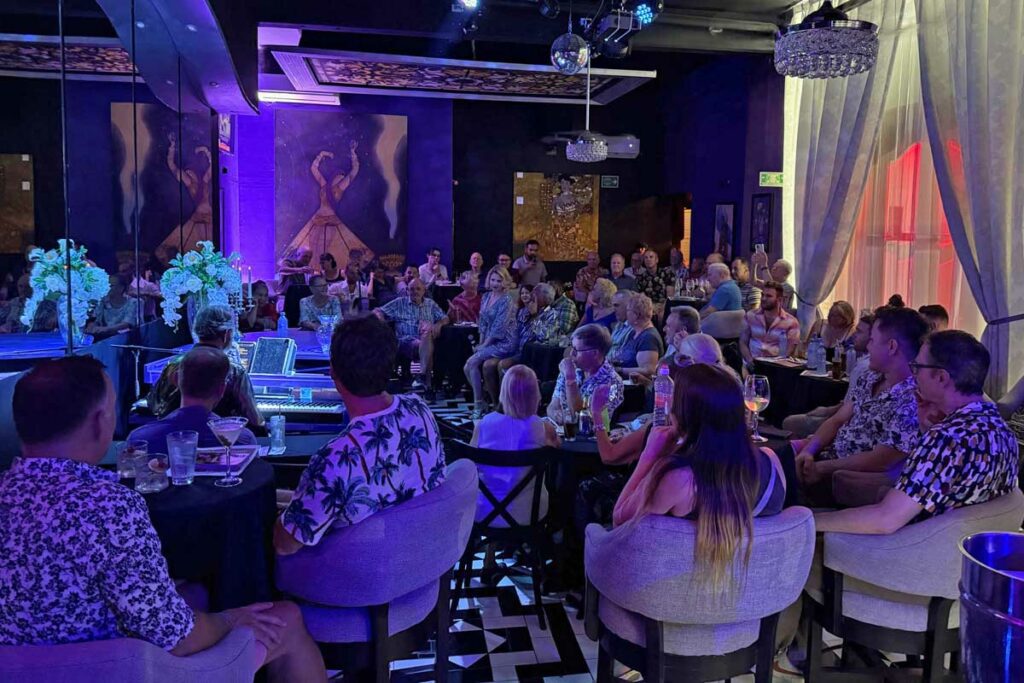
Robert is set to make his solo show debut on March 12, 2025, with Songs from the Heart. Embracing his newfound confidence, he is ready to take the stage in an unabashedly authentic manner. “This workshop changed everything for me,” he said.
Fiesta de Cabaret’s impact on its participants was profound, and its return in November 2025 promises another opportunity for artists to refine their craft in a nurturing and inspiring environment. “A huge thank you to David Sabella and Mark Hartman for coordinating this incredible experience,” Stephanie added. “And to Lina Koutrakos, David Maiocco, Tracy Stark, Yaz, Sue Matsuki, and all the guest performers for sharing their time and wisdom with us.”
With another year to grow and new students set to join, Fiesta de Cabaret is poised to remain a transformative force in the world of cabaret performance. The festival not only refines technical skills but fosters the courage to be vulnerable, the strength to connect, and the artistry to make each song a personal narrative.
Tickets and additional details for the 2025 edition of Fiesta de Cabaret will be available at Act2PV.
